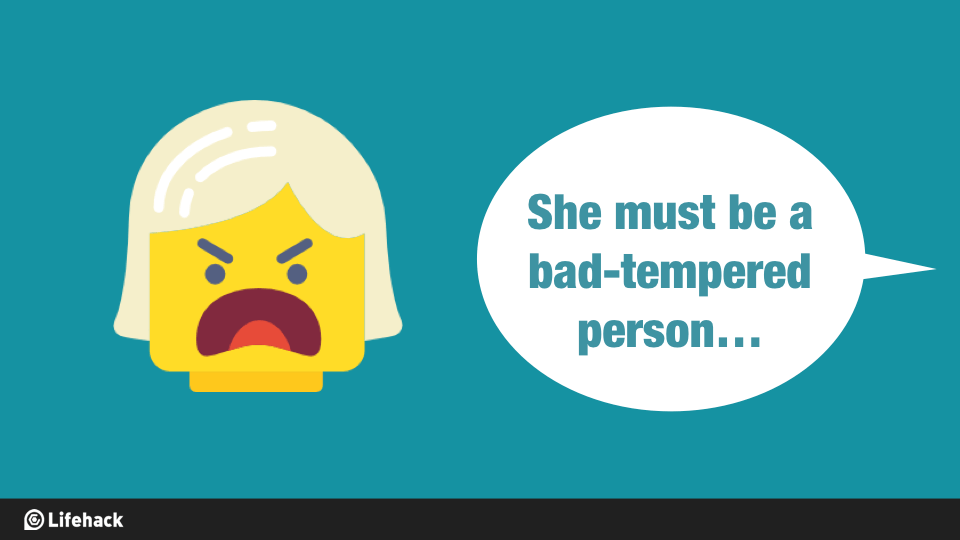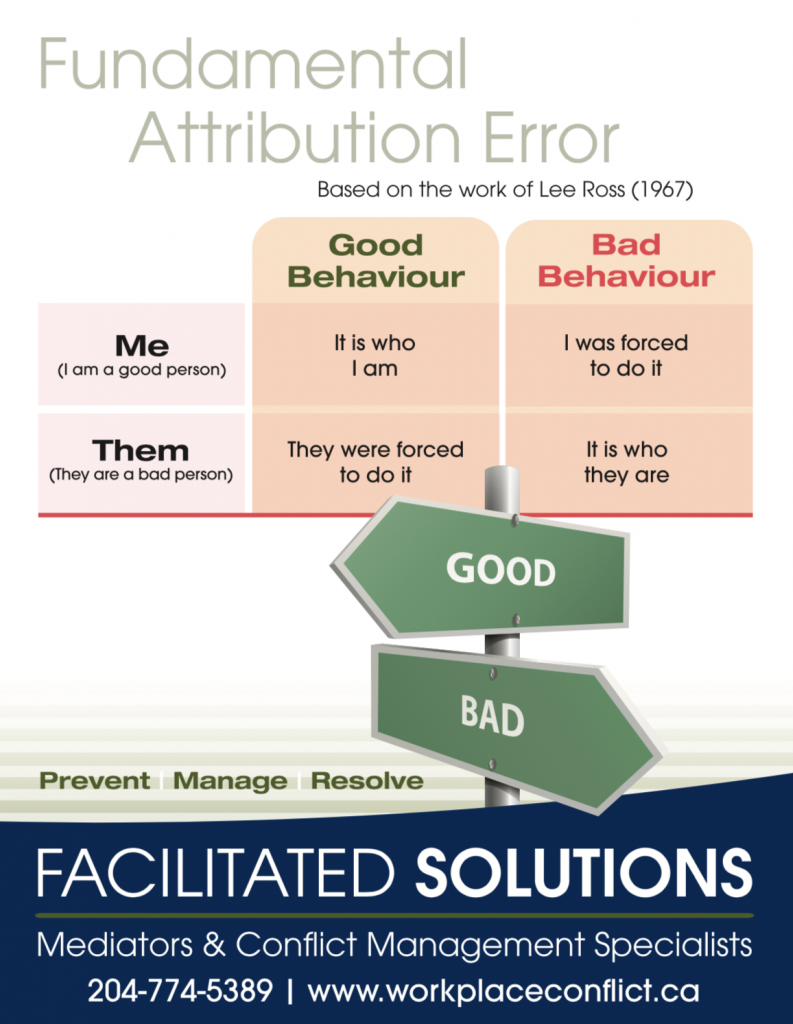

This is convenient for our peace of mind, and fits with our domain of knowledge, too. You’re not evil, just stressed! The coworker who snaps at you, however, is more likely to be interpreted as a jerk, without going through the same kind of rationalization. If you snap at a coworker, for example, you may rationalize your behavior by remembering that you had difficulty sleeping last night and had financial struggles this month. But when we misbehave, we are better at recognizing the external pressures on us that shape our actions: a situational understanding. When someone wrongs us, we tend to think they are evil, misguided or selfish: a personalized explanation. This is such a common way of looking at the world that social psychologists have a word for it: the fundamental attribution error. We tend to seek internal, psychological explanations for the behavior of those around us while making situational excuses for our own.

We also have a bias for the individual as the locus of agency in interpreting our own everyday life and the behavior of others. (Oh, ye of little faith!) Instead, they might think that the FAE is something like the following: Now, some readers may object that what I have described is not what the FAE means and that I don’t know what I am talking about.


 0 kommentar(er)
0 kommentar(er)
